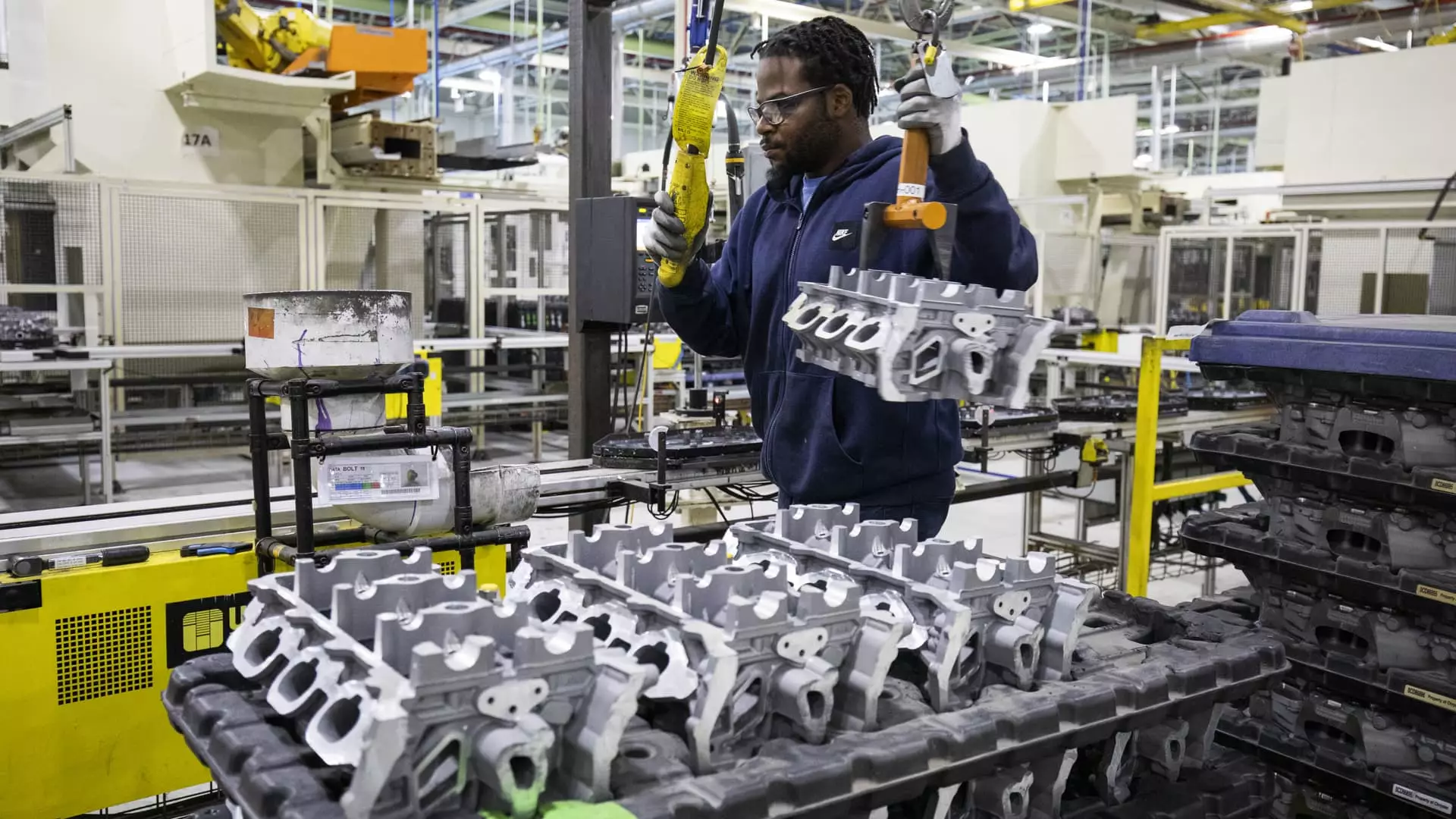In an unusual turn of events, six of the most prominent policy organizations within the United States automotive sector have banded together to advocate against a proposed 25% tariff on auto parts. This coalition, which includes representatives from dealers, suppliers, and nearly all major automakers, has generated a significant wave of concern as they warn that these tariffs could instigate catastrophic disruptions to U.S. automotive production. The urgency expressed in their letters to the Trump administration transcends typical industry lobbying, showcasing the depth of distress that permeates through the supply chains of the automotive world today.
The blending of varied interests—from franchised dealerships to vehicle suppliers—reflects a troubling consensus: many auto suppliers are already teetering on the brink of failure. Their letter starkly acknowledges that the additional financial burden of tariffs could lead to a cascade of production halts, job losses, and even bankruptcies. It’s a telling illustration of the volatility within an industry that is foundational to the American economy, where the failure of a single supplier can trigger a disastrous shutdown of an entire manufacturing operation.
The Fragility of the Supply Chain
Trade tensions and policies intended to bolster American manufacturing can backfire spectacularly, particularly when the underlying structure is so fragile. The manufacturers represented by these groups channel over $1.2 trillion into the economy, supporting ten million jobs nationwide—this is not a mere statistic; it is a lifeline for many families. Yet, the current environment is increasingly threatening that lifeline. Amidst a struggling global economy deeply affected by the pandemic, the call for tariff relief hasn’t just been a protective measure but a desperate plea for survival.
Historical precedents illustrate just how interconnected and reliant the automotive supply chain is; one breakdown could send shockwaves through the market. The warning from industry leaders serves as testament that while protectionist measures might aim at stabilizing domestic production, they can also stifle growth, lead to job losses, and endanger economic stability. In essence, the proposed tariffs could unravel years of painstakingly crafted supply networks that are critical for both manufacturing efficiency and economic resilience.
Complicity in Crisis
While President Trump has proposed potential concessions for automakers adjusting to changing supply conditions, it’s evident that this optimism doesn’t alleviate the immediate dangers posed by the tariffs. The automotive sector is laden with challenges, and increased costs are projected to translate into higher prices for consumers, with an anticipated downturn in vehicle sales expected to reach millions of units. It’s a precarious balancing act; one that requires more than just political goodwill but rather a solid understanding of global market dynamics.
Industry executives have voiced significant concern, indicating that the tariffs will impose a greater direct burden on auto suppliers than on the automakers themselves. This points to a deeper malaise affecting the sector: while automakers may have some buffer against tariffs through pricing power, suppliers operate on razor-thin margins and lack maneuverability. This captures the inherent risks of an isolated policy approach, one where tariffs are set without a holistic view of the reverberating consequences throughout the economic landscape.
Moving Forward—A Plea for Pragmatism
The joint letter from the automotive sector’s leading organizations lays down an important premise: rallying around a cooperative framework is essential for navigating the complex realities of today’s global economy. Advocating a shift to domestic sourcing is undoubtedly a noble goal, yet the logistics of global supply chains cannot be overlooked. The letter encapsulates a pragmatic understanding that rerouting these networks may take extensive time and resources, something that existing policies fail to account for.
In a climate where governmental policies can exacerbate economic woes, the collective voice of the automotive industry implores decision-makers to reconsider the rigidity of proposed tariffs. Instead of punitive tariffs, a collaborative dialogue that recognizes the intricacies of supply chains can pave the way for sustainable growth and stability. It’s time to prioritize a path that strengthens partnerships within the industry, rather than one that risks fracturing the very foundations of American manufacturing.


Leave a Reply